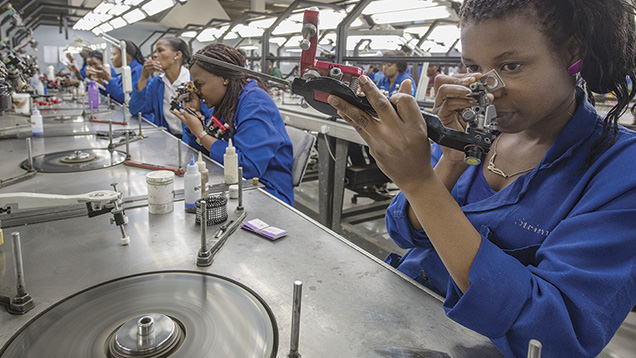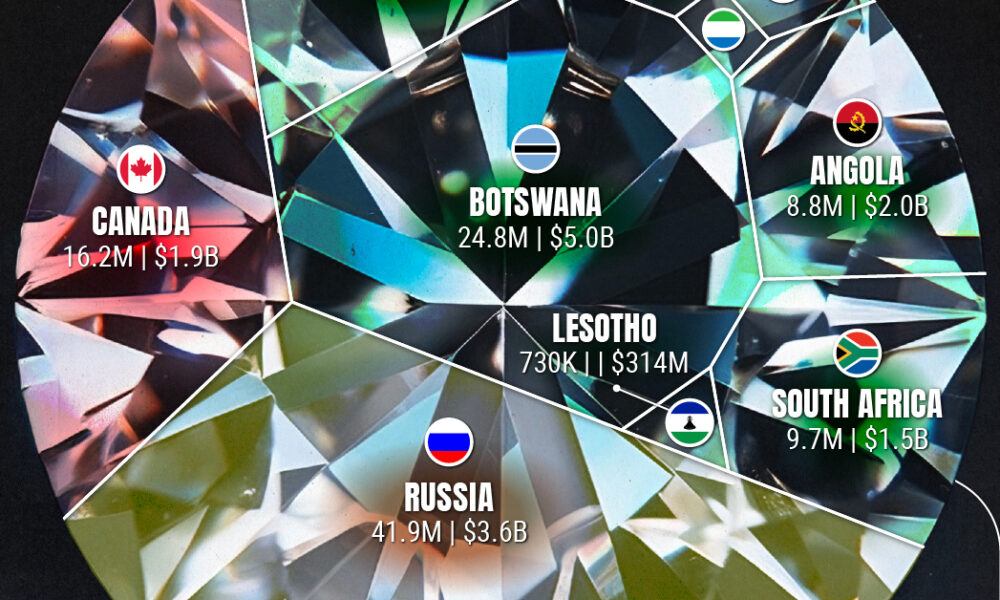The Mining Industry in Botswana: A Shining Jewel
The Mintly Team
October 27, 2023
Located in the heart of southern Africa, Botswana is renowned for its stunning landscapes, rich wildlife, and more recently, its economic prosperity. This prosperity can be traced back to an industry that has been the backbone of Botswana’s economy for several decades: the mining industry.
Welcome to our exploration into Botswana’s mining industry, a shining jewel in the rough. A significant contributor to the country’s GDP, this sector is a beacon of economic stability. From diamonds, the nation’s crown gem, to copper and nickel, Botswana’s mineral wealth is vast. Join us as we delve into the factors behind this industry’s growth, its sustainability practices, and how it continues to shape Botswana’s social-economic landscape.
A Glimpse into Botswana’s Mining Landscape
Botswana, situated in Southern Africa, is a country rich in a variety of mineral resources. The Mining Industry in Botswana plays a significant role in the country’s economy, contributing substantially to its Gross Domestic Product (GDP). It’s an industry that has seen steady growth over the years, attracting international investors and expanding the country’s economic base.
The Mining Industry in Botswana is diverse with diamonds, copper, nickel, and coal among the primary minerals mined. Diamonds are of particular prominence, with Botswana being one of the world’s leading producers. The Jwaneng and Orapa mines are among the most prolific diamond mines globally.
Botswana’s government has made significant strides in managing the mining sector effectively. Policies have been put in place to ensure that the benefits of mining extend to the entire population. This includes efforts aimed at localizing the value chain to increase local participation and enhance skills transfer.
In recent years, the Mining Industry in Botswana has shown an increasing commitment to environmental sustainability. There are rigorous measures in place for the protection of the environment during extraction and processing activities.
Investment in technology is another notable trend within the sector. Mining companies are leveraging modern technology to enhance efficiency, improve safety standards, and mitigate environmental impact.
Furthermore, exploration activities continue to reveal promising prospects for the discovery of new mineral deposits. This indicates that the Mining Industry in Botswana is poised for continued growth and evolution.
Despite facing challenges such as fluctuating commodity prices and a need for further infrastructure development, the Mining Industry in Botswana remains resilient. It is well-positioned to continue as a cornerstone of the country’s economy, generating wealth and employment opportunities for its people.

The Diamond Industry: A Precious Economic Pillar
The diamond industry is a crucial part of many economies, forming the backbone of wealth and employment in various regions across the globe. A shining example of this is the mining industry in Botswana, which has seen a dramatic transformation since the discovery of diamonds in the late 1960s.
The diamond mining dominates the mining industry in Botswana. This accounts for about 80% of the country’s export earnings. Botswana is the world’s second-largest producer of diamonds, and the industry has played a central role in transforming the country from one of the poorest in the world to a middle-income country.
Diamond mining in Botswana comes under the operation by Debswana, a joint venture between the government and De Beers. This partnership has been instrumental in ensuring that benefits from diamond mining are shared equitably. Revenues from diamond mining have been invested into education, healthcare, and infrastructure development, leading to significant social and economic benefits for the citizens of Botswana.
However, the mining industry in Botswana is not without its challenges. The country is highly dependent on diamonds, and any fluctuations in global diamond prices can severely impact its economy. Additionally, the finite nature of diamond resources raises concerns about the sustainability of this economic model.
To mitigate these risks, the government has embarked on diversification strategies, including promoting other forms of mining such as copper and coal, as well as sectors like tourism and finance. The goal is to create a more balanced and resilient economy that can withstand potential shocks from the diamond industry.
Diversification: The Future of Mining in Botswana
The future of Botswana’s prosperity lies within broadening its horizons beyond diamonds. The call for diversification is not merely a buzzword; it’s a strategic move to ensure the sustainability and growth of the Mining Industry in Botswana.
The Mining Industry in Botswana has primarily been driven by diamond mining, which has significantly contributed to the country’s GDP. The dominance of diamonds in Botswana’s mining sector has been a double-edged sword. While it has brought considerable wealth, it has also made the economy vulnerable to global market fluctuations. Recognizing this vulnerability, the government and industry stakeholders have been advocating for diversification within the mining sector.
The vast mineral resources of Botswana include copper, nickel, coal, iron ore, silver, and gold, among others. Expanding the Mining Industry in Botswana to include these minerals can reduce the over-dependence on diamonds and create a more resilient economy. Furthermore, diversification can lead to job creation and stimulate the development of ancillary industries.
Key to diversification is the creation of favorable investment policies and an enabling environment for exploration and mining. The Botswana government is making strides in this direction by offering incentives and streamlining regulations to attract investment into other mineral sectors.
Another area of focus should be the development of human capital. Expanding the Mining Industry in Botswana beyond diamonds will require unique skills and expertise. Therefore, investment in education and training programs tailored towards other mining sectors is crucial.
Sustainable Mining Practices
The country’s mining industry, which contributes significantly to its GDP, has integrated environmental sustainability into its operations, setting an example for other resource-rich nations.
The cornerstone of Botswana’s sustainable mining model is the principles of minimizing environmental impact and promoting community involvement. The government, in collaboration with mining companies, has implemented strict regulations to ensure the minimization of harmful practices such as deforestation and water contamination.
Botswana’s Department of Environmental Affairs oversees the implementation of environmental management plans. These plans require mining operators to conduct comprehensive Environmental Impact Assessments (EIAs) before any mining activity. The EIAs identify potential environmental risks and propose mitigation measures, ensuring that natural habitats are preserved and biodiversity is protected.
Interestingly, the country has also made strides in land reclamation post-mining. Mining companies are obligated to restore mined lands to their original state or better. This includes re-vegetation efforts and strategies to prevent soil erosion, thus ensuring that the land can be used productively after mining operations cease.
Community involvement is another hallmark of Botswana’s sustainable mining approach. The government and mining corporations engage local communities in decision-making processes. Through this participatory approach, communities have a say in how you can manage natural resources. How they benefit from their extraction through employment opportunities and community development projects.
Botswana’s mining industry also focuses on energy efficiency and reducing carbon emissions. Many mines now use renewable energy sources, like solar power, to meet their energy needs. This not only reduces their carbon footprint but also enhances their operational efficiency.
Conclusion
Botswana’s mining industry plays an essential role in its economy, creating jobs, generating revenue, and driving growth. The success story of Botswana’s diamond industry sets an example for resource-rich nations worldwide. As Botswana looks to diversify its mining sector further and exploit other mineral resources, the future of this industry remains bright and promising.
All Tags
